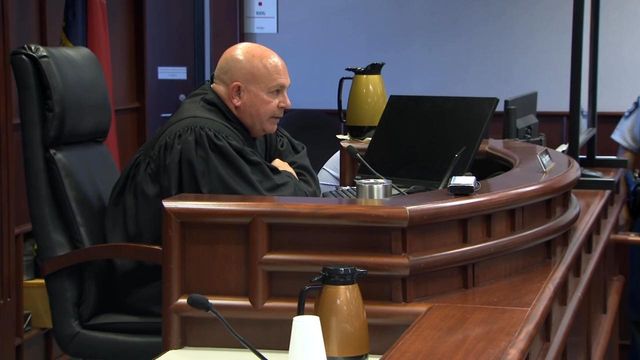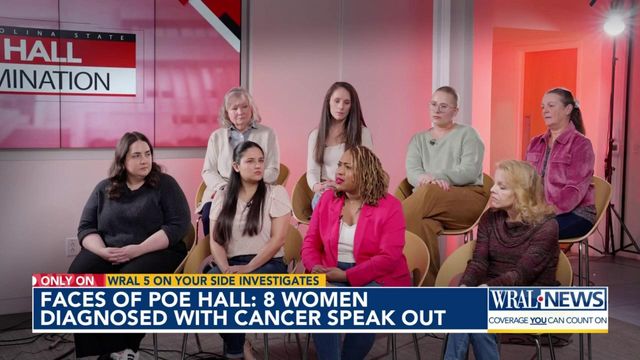Judge rules NC State must allow outside investigators inside Poe Hall
North Carolina State University alumni and workers have the ability to investigate a building they believe may have made them sick for the first time in six months.
Attorneys representing NC State alumni and employees asked Wake County Superior Judge Hoyt Tessener to allow them access to the building and to depose NC State leaders, like Chancellor Randy Woodson, about Poe Hall ahead of filing lawsuits. Tessener granted them that ability. The university now has 30 days to turn over documents related to Poe Hall and let the outside experts into the building.
The evidence gained during depositions and testing could pave the way for lawsuits in the future. Attorneys working on behalf of NC State argued its own testing of Poe Hall was sufficient.
The move marks the first major legal challenge NC State has faced since closing Poe Hall in November 2023. Samples collected in October and November showed dangerously high levels of toxic chemicals, PCBs, inside the seven-story education and psychology building. PCBs are a known carcinogen.
Prior to a 1979 EPA ban, PCBs were commonly used in building materials such as insulation, paint, caulking and machinery. Unless actively removed, PCBs remain present in many schools and government buildings today. Unlike other contaminants, PCBs do not have to be disturbed to become problematic. Because they are semi-volatile, they can leach out into the air and enter the human body.
In the more than five months since NC State closed Poe Hall, WRAL 5 On Your Side has independently collected more than 190 reports of cancer in people who worked or studied in the once-busy classroom building. The cases included in this count were either self-reported or reported by family members of deceased alumni or employees; 21 people in the count are dead.
Nearly 50% of the people who reported cancer say they were diagnosed with cancer in the last five years. More than 40% of the cases reported are breast cancer.
WRAL 5 On Your Side compared county cancer data with the rate of breast cancer in employees at Poe Hall and found the rate of breast cancer was three times higher.
WRAL 5 On Your Side began collecting the cancer cases after NC State said it would not.
Woodson told WRAL 5 On Your Side that he could not comment on health issues until more extensive PCB testing inside Poe Hall was completed.
A month after closing the building, NC State hired consulting firm Geosyntec Consultants to conduct more extensive PCB testing. When asked why the university had not let the Environmental Protection Agency, Centers for Disease Control and Prevention or state health department into Poe Hall despite efforts or offerings to get inside, Woodson told WRAL 5 On Your Side, “We own the building.”
As of its last report, Geosyntec Consultants has taken fewer than 100 samples of Poe Hall, a number some experts say may be woefully too few. Several environmental health experts with familiarity with PCBs, including retired Harvard faculty member Dr. Robert Herrick, told WRAL 5 On Your Side that hundreds or more than 1,000 samples would need to be taken inside Poe Hall to really understand the PCB exposure in the building. In a sworn affidavit, environmental expert Dr. Ranajit Sahu said he had “serious concerns” over Geosyntec’s handling of Poe Hall.
Sahu was critical of NC State’s refusal to publicly release Geosyntec Consultants' sampling protocols and methods.
“Such protocols and methods would not withstand peer review or public scrutiny,” Sahu said.
Sahu said he had several problems with NC State and Geosyntec’s handling of the building’s HVAC system.
The HVAC system had been off since NCSU closed Poe Hall in November 2023. Attorneys working on behalf of NC State admitted that the university had turned it back on mid-April but did not take any air samples. Sahu called it “a lost opportunity to gather evidence of PCB or other contaminants.”
Attorneys working on behalf of NC State filed a motion asking Tessener to close court proceedings to the public. Tessener heard arguments from attorneys representing NC State and those representing clients who spent time in Poe Hall and later became sick.














